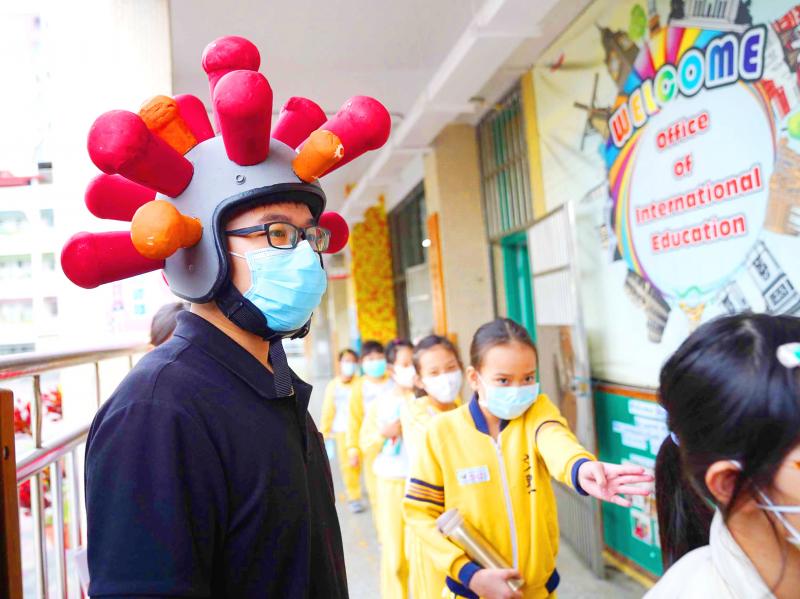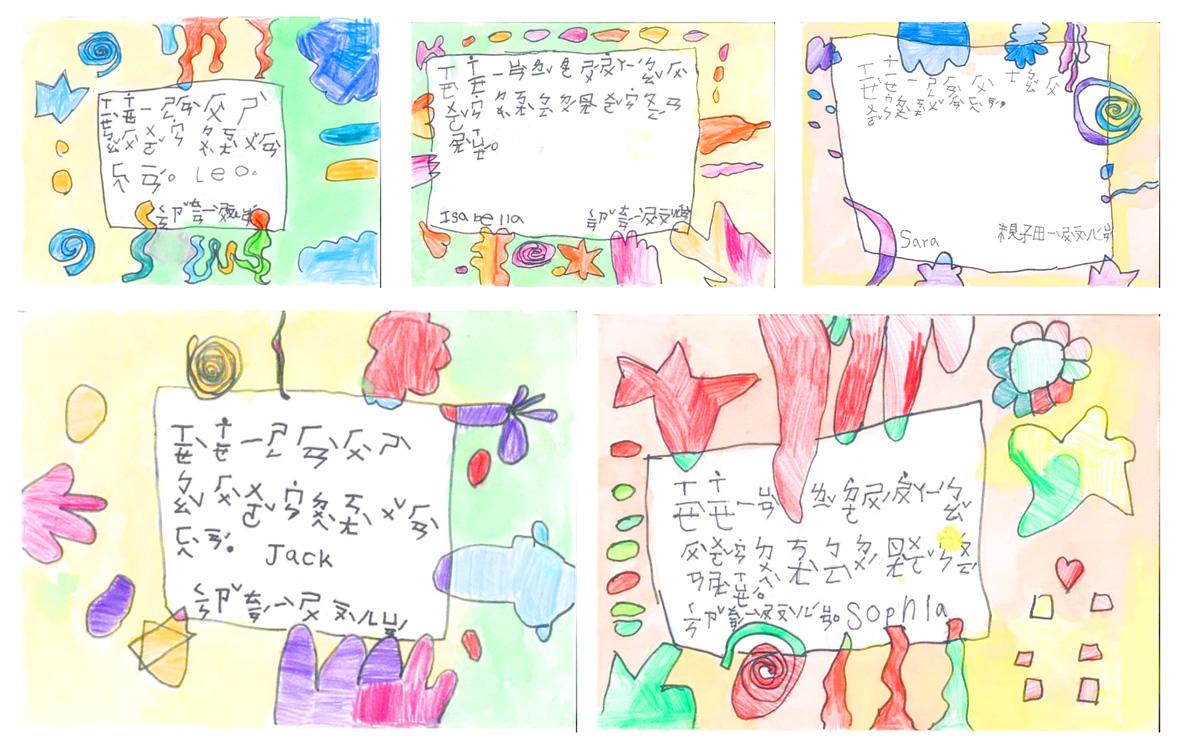The Central Epidemic Command Center (CECC) yesterday disclosed the nation’s capacity for treating COVID-19 patients, adding that it has 34 facilities capable of analyzing 3,800 tests per day.
The global outbreak of COVID-19 is still severe, and clustered infections in local communities or healthcare facilities have been reported in many countries, said Deputy Minister of Health and Welfare Hsueh Jui-yuan (薛瑞元), who heads the CECC’s medical response division.
The center has six main strategies to ensure that Taiwan’s healthcare system has sufficient medical capacity, he said.

Photo: CNA
While about 1,500 tests are being performed every day, the nation’s “expanded COVID-19 testing capacity” has reached about 3,800 tests per day, which can be analyzed at 34 testing facilities — 16 in northern Taiwan, 10 in southern Taiwan, seven in central Taiwan and one in eastern Taiwan, he said.
The “enhanced community-based surveillance” strategy includes increasing tests on high-risk groups and establishing a network of testing stations in communities, he said.
High-risk groups include healthcare workers, airline crew members, passengers who returned on a flight from New York in which 10 confirmed cases were detected and people who visited overcrowded tourist spots during the four-day Tomb Sweeping holiday, Hsueh said.

Photo: Chen Chien-chih, Taipei Times
There are 163 hospitals capable of performing tests on suspected cases, 143 responsive and isolation hospitals designated for admitting patients with mild symptoms, and 52 regional hospitals and medical centers that can take in patients with severe symptoms, he said.
There are four phases in the “expanding capacity for hospitalizing COVID-19 patients” strategy for designated responsive hospitals, Hsueh said.
They include admitting patients to negative-pressure isolation wards or single rooms, setting up exclusive COVID-19 departments, suspending the admittance of non-COVID-19 patients and resettling non-COVID-19 patients to other hospitals, he said.
As part of the “making an inventory of hospital beds and respirators” strategy, he said that there are 2,713 hospitals beds, including in negative-pressure isolation wards and COVID-19-designated wards, that can be used for treating infected patients, with 1,597 beds, or 59 percent, still vacant.
That capacity could expand to 20,985 beds if a widespread local outbreak occurs, Hsueh said.
About 1,300 of the 9,932 respirators in the nation are available, and the center expects to increase capacity to about 2,200, he added.
Minister of Health and Welfare Chen Shih-chung (陳時中), who heads the CECC, said the center also hopes to continue its strategy of “expanding the capacity of centralized quarantine” from 1,553 rooms at 13 quarantine centers to more than 3,000 rooms.
Hsueh said the center has created principles for “implementing a triage system to admit or refer COVID-19 patients” to different levels of hospitals according to each patient’s condition.
Meanwhile, the CECC reported three new cases in Taiwan, all imported.
Chen said that the three confirmed cases are two women and one man, all in their 20s, who returned from France, the UK and the US between Monday and Saturday last week.
Case No. 374, a man who studies in the UK, and case No. 375, a woman who visited her family in France, as well as visiting Belgium, the Netherlands and the UK during her trip, were under home quarantine when they experienced symptoms and reported for testing, he said.
Case No. 376 is a woman who studies in the US. She returned to Taiwan on the same flight — China Airlines (華航) Flight CI011 from New York to Taipei on Monday last week — as several other previously reported cases, so she was under home isolation when she began experiencing symptoms on Thursday last week, Chen said.
As 10 passengers on the flight have tested positive for COVID-19 so far, Centers for Disease Control Deputy Director-General Chuang Jen-hsiang (莊人祥) said that the center has decided to test all of its 323 passengers and 13 crew members.

ENDEAVOR MANTA: The ship is programmed to automatically return to its designated home port and would self-destruct if seized by another party The Endeavor Manta, Taiwan’s first military-specification uncrewed surface vehicle (USV) tailor-made to operate in the Taiwan Strait in a bid to bolster the nation’s asymmetric combat capabilities made its first appearance at Kaohsiung’s Singda Harbor yesterday. Taking inspiration from Ukraine’s navy, which is using USVs to force Russia’s Black Sea fleet to take shelter within its own ports, CSBC Taiwan (台灣國際造船) established a research and development unit on USVs last year, CSBC chairman Huang Cheng-hung (黃正弘) said. With the exception of the satellite guidance system and the outboard motors — which were purchased from foreign companies that were not affiliated with Chinese-funded

PERMIT REVOKED: The influencer at a news conference said the National Immigration Agency was infringing on human rights and persecuting Chinese spouses Chinese influencer “Yaya in Taiwan” (亞亞在台灣) yesterday evening voluntarily left Taiwan, despite saying yesterday morning that she had “no intention” of leaving after her residence permit was revoked over her comments on Taiwan being “unified” with China by military force. The Ministry of the Interior yesterday had said that it could forcibly deport the influencer at midnight, but was considering taking a more flexible approach and beginning procedures this morning. The influencer, whose given name is Liu Zhenya (劉振亞), departed on a 8:45pm flight from Taipei International Airport (Songshan airport) to Fuzhou, China. Liu held a news conference at the airport at 7pm,

Authorities yesterday elaborated on the rules governing Employment Gold Cards after a US cardholder was barred from entering Taiwan for six years after working without a permit during a 2023 visit. American YouTuber LeLe Farley was barred after already being approved for an Employment Gold Card, he said in a video published on his channel on Saturday. Farley, who has more than 420,000 subscribers on his YouTube channel, was approved for his Gold Card last month, but was told at a check-in counter at the Los Angeles International Airport that he could not enter Taiwan. That was because he previously participated in two

SECURITY RISK: If there is a conflict between China and Taiwan, ‘there would likely be significant consequences to global economic and security interests,’ it said China remains the top military and cyber threat to the US and continues to make progress on capabilities to seize Taiwan, a report by US intelligence agencies said on Tuesday. The report provides an overview of the “collective insights” of top US intelligence agencies about the security threats to the US posed by foreign nations and criminal organizations. In its Annual Threat Assessment, the agencies divided threats facing the US into two broad categories, “nonstate transnational criminals and terrorists” and “major state actors,” with China, Russia, Iran and North Korea named. Of those countries, “China presents the most comprehensive and robust military threat